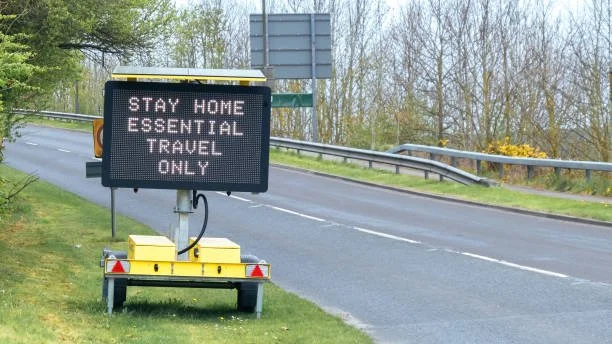Did the COVID Lockdowns Truly Affect us? It Fixed Problems, but What Did It Cause?
/The world as we knew it stopped, it shut down. The phrase “The world won’t stop for you”, stopped being true. This wasn’t just a shut down, this was a time where grief was felt world-wide, and we had to adapt to a whole new way of living. The pandemic brought lockdowns, school closures, and an extreme shift to how we live. While yes, this was needed for public health, it also created many problems that this generation may not have been prepared for. Have you felt a change in your social ability? How you learn, or even the healthcare system? In this post, we will explore the different problems that the lockdowns could have implicated in our generation, and how we it has changed us.
A World-Wide Setback
Across the world, schools shut down. It started off as 2 weeks and it slowly turned into months some turned to a year. According to UNICEF, over 168 million children were out of school for nearly a year. Within 11 countries, students missed about 3 quarters or more of their in-person education between March 2020 and September of 2021. This was needed for health concerns, but what were the other results? Some studies showed that there was a loss of months in reading comprehension and math studies for many students. Also showing that younger students and those for lower-income communities were highly affected, some losing almost 8 months of learning.
These problems may seem small, but it meant that even as schools opened back up, many people felt that they were already behind in their learning. This not only could’ve affected grades, but the people’s confidence, motivation and mental health.
How Did It Affect Our Growing Minds?
Taking in the learning setbacks and social problems, all of this had an impact on the mental health of children, teenagers and pre-teens. The long-term isolation, the disruption of daily routine and the “unknown” of what the news would say next, led to a rise in anxiety and depression among kids and teens. The World Health Organization put out a study that shows the rates of anxiety and depression increasing by 25% during the 2020 pandemic. This shows how the mental state of children and teens were impacted. There was also a loss of access to help, leaving it to strictly online availability. There was a huge loss in connection, and it left many struggling with their mental state. This caused some people to experience long-term phycological effects even after restrictions where lifted.
Social Problems
It wasn’t just the classrooms that were empty, but also playgrounds, clubs, parties, sports and all social gatherings. The development of children is partially dependent on social integration, making friends, especially in early ages. A survey showed that 7 in 10 parents felt hat the lockdowns had a negative impact on their kids social development and social abilities. We are social beings by nature, and the simply being alone for long periods of time, especially as a growing child, has shown to cause problems in different social skills. Communication skills, social anxiety, and even learning to regulate our own emotions. Furthermore, s comparison study showed that children in the ages of 1-10 were impacted in their attention spans and even sleeping problems. Many of these problems continued to affect children into the year and 2021.
Did These New Problems Come with new Solutions?
During these times, it had become a random time of withdrawing kids from the regular schooling and day-to-day life. The upcoming generation faced problems then and continue to face problems now. It has created many changes to our livelihood and to how we look at the world as we grow up. While the world is continuing to recover, there will always be risks, in health and in personal circumstances.
This pause in the world is a remembrance of loss, and a time of grief. But also, a time where we put our faith into humanity, and where many of us came together to try and be safe, not just for each other but for our loved ones, for strangers, and for those who are no longer with us because of COVID. There was a sense that even though we were struggling, we were struggling together.



